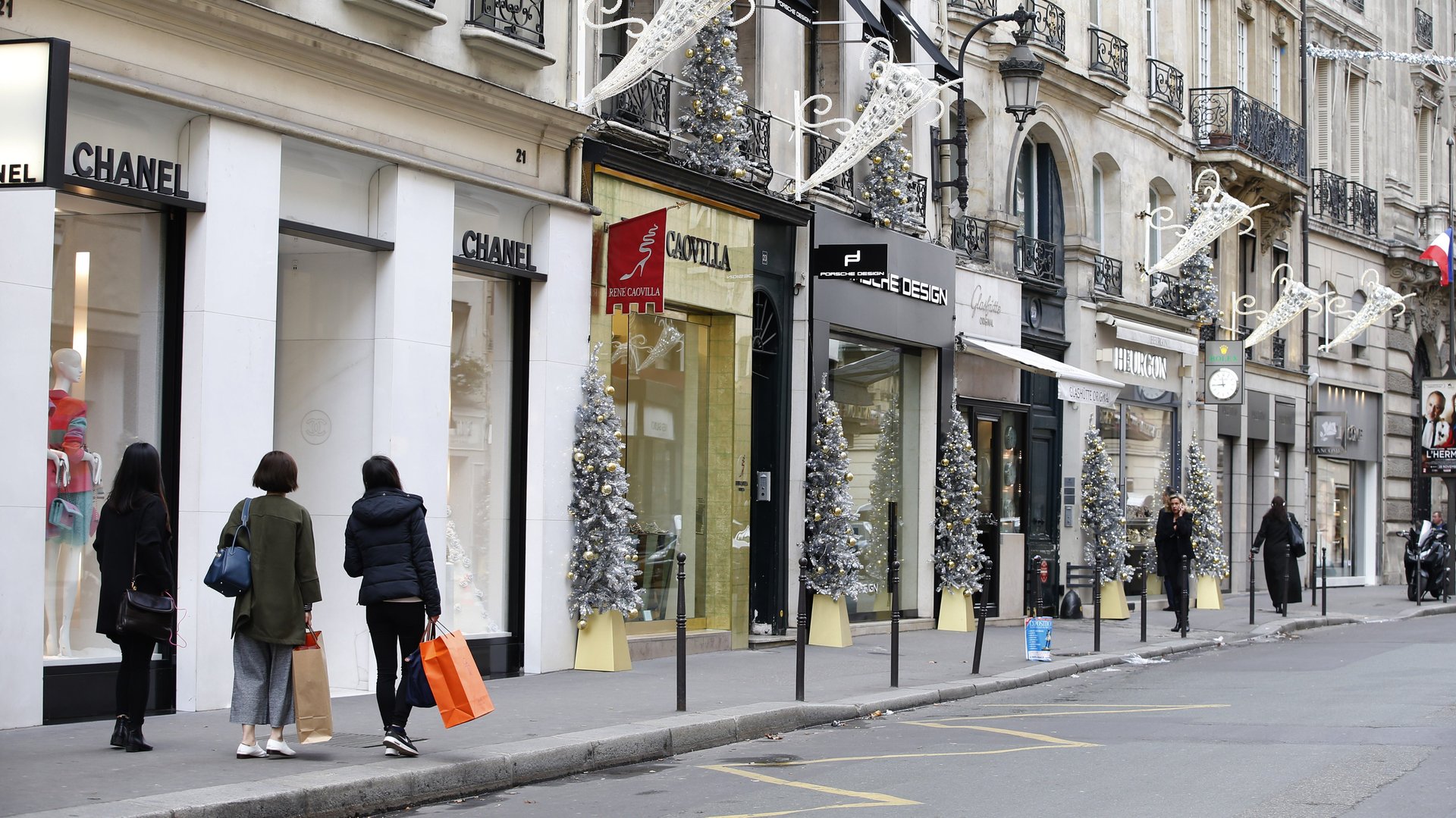The aftermath of the Paris attacks shows what Europe’s many luxury companies can expect after Brussels
Yesterday (March 23), Hermès CEO Axel Dumas spoke to reporters in Paris about the company’s 2015 results. Sales were good, but he had to confront a grim reality facing European businesses, even makers of high-priced luxury goods. Terrorism, in particular the attacks in Paris in Nov. 2015, had strained sales, and after the new attacks in Brussels on March 22, it was something Hermès had to note when considering the year ahead.


Yesterday (March 23), Hermès CEO Axel Dumas spoke to reporters in Paris about the company’s 2015 results. Sales were good, but he had to confront a grim reality facing European businesses, even makers of high-priced luxury goods. Terrorism, in particular the attacks in Paris in Nov. 2015, had strained sales, and after the new attacks in Brussels on March 22, it was something Hermès had to note when considering the year ahead.
Tourists, particularly those from China, are vital to many luxury labels, including Gucci, Burberry, Prada, and Louis Vuitton. As fear of attacks keep visitors away, these businesses feel the impact. Richemont, the Swiss maker of high-end watches, said in January that the Paris attacks had caused a 3% dip in sales in the final three months of 2015.
But the aftermath of previous attacks suggests that, while the negative effects are significant, they tend to be limited to the short or medium-term.
Global Blue, which handles payments on tax-free shopping, said in February that tourist spending in France, a particularly important market, declined 8% in Dec. 2015 versus the year before, and dropped 21% in Jan. 2016. “The Paris terrorist attacks are still affecting tourism numbers and [tax-free shopping] performance here,” it noted. Many tourists stayed away from nearby countries as well. Germany also saw a drop of 17% in January.
Even so, Global Blue described the overall effect of the Paris attacks as “immediate (but limited)” in a 2015 end-of-year report. One reason: Chinese tourists were already buying less in Europe and more in Japan and Russia.
The attacks in Brussels will likely show similar effects. ”The terrorist attacks are expected to slow down travel demand and possibly could lead to a 10-20% decline in bookings following heightened fears of further attacks,” Nadejda Popova, travel project manager at research firm Euromonitor International, told Quartz. “This is not expected to have a long term impact, as the European travel industry has proven to be very resilient to such external impacts and recover fairly quickly.”
Luca Solca, head luxury analyst at investment firm Exane BNP Paribas, told Quartz he expects the Paris attacks to show up in lower sales in the first quarter of 2016, reflecting the numbers from Global Blue. The Brussels attacks would extend that pressure, particularly if tourists begin to feel these acts are no longer isolated events.
But assuming no further incidents, the tourism business in Europe should return to health quickly. A report by Deloitte last year concluded that cities now bounce back much more quickly from terrorist attacks than they did 15 years ago.